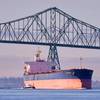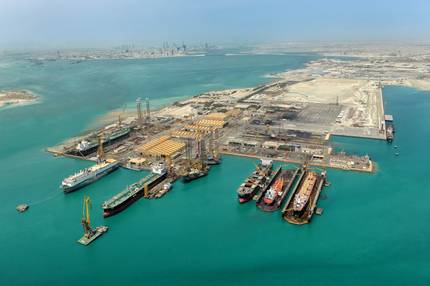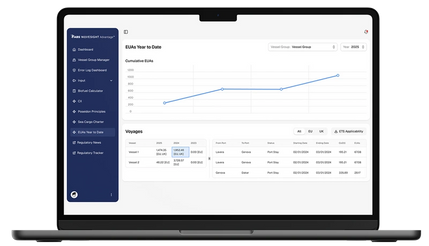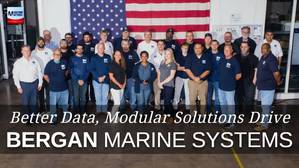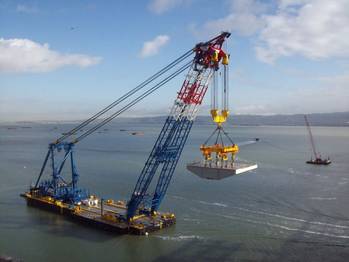The public cargo and cruise vessel marine terminals operated by the Port of Houston Authority (PHA) have contributed to 115,970 jobs throughout Texas, a total of $2.7 billion in wages and salaries, nearly $4.1 billion in business revenue, and more than $248
million in state and local taxes, according to statistics calculated by Martin Associates, the consulting firm in Lancaster, PA that has conducted economic impact studies for 120 ports in the U.S. and Canada. The portion of cargo tonnage specifically attributed to the
PHA's public terminals measured 27,459,793 short tons in 2001 compared
to 28,716,793 short tons in 2000, according to the PHA. By contrast,
however, PHA estimates indicate that the container tonnage handled at
PHA terminals increased to a total of 10,119,938 short tons in 2001
from 9,751,876 short tons in 2000.
According to John Martin, president of Martin Associates, "As the
industry continues its rapid pace of consolidation, containerization
is the increasingly appealing option for shippers that are focused on
lowering costs and enhancing efficiency." Martin also noted that the
shifting preference creates many challenges for accommodations at port
facilities around the world.
"The dynamic trends reflected in these statistics resoundingly
demonstrate the pressing need for PHA to expand its container
capacity," stated James T. Edmonds, chairman of the Port of Houston
board of commissioners. "The proposed Bayport container facility,
which continues to undergo a careful and deliberative public review
process, holds the potential to ensure that the Port remains a vital
economic engine for the future economic growth of our region," Edmonds
added.
The impacts reported by Martin Associates, which are based on data from 2000, correlate to the PHA's recent estimate of a combined cargo
tonnage increase to 194,000,000 short tons in 2001 from 191,419,264 short tons in 2000 for all public PHA terminals and private terminals
along the Port of Houston. In its study presented to the Port's board of commissioners, Martin Associates examined the economic impact of
jobs, employee earnings, business revenue, and state and local taxes generated during 2000 by marine cargo activity at the public and
private marine terminals located along the Houston Ship Channel. Among the findings:
A total of 287,454 jobs in Texas were some way related to the movement of cargo through the Port. The total consisted of but was not limited to 89,710 direct jobs - both at the Port's terminals and those induced as a result of purchases by individuals holding Port terminal jobs; and 53,203 indirect jobs supported through local purchases by businesses supplying services at the marine terminals and by businesses dependent upon the Port.
A total of $7.2 billion in wages and salaries were earned from direct, induced, and indirect jobs generated by maritime activity at the Port.
"Through the years the Port of Houston has been the heart of Houston's international infrastructure," said Jim Kollaer, Greater
Houston Partnership president and CEO. "As the nation's leading port in foreign cargo and second in total tonnage, the Port of Houston's commercial prominence solidifies Houston's status as an international city," Kollaer added. Martin Associates' study was based on interviews with more than 1,200 firms that provide services to the cargo and vessels handled at the PHA's marine terminals and the private terminals along the Houston Ship channel. These firms represent more than 95 percent of the firms in the Houston seaport community. The data collected from the
interviews were then used to develop an operational model of the PHA public and private marine terminals.





